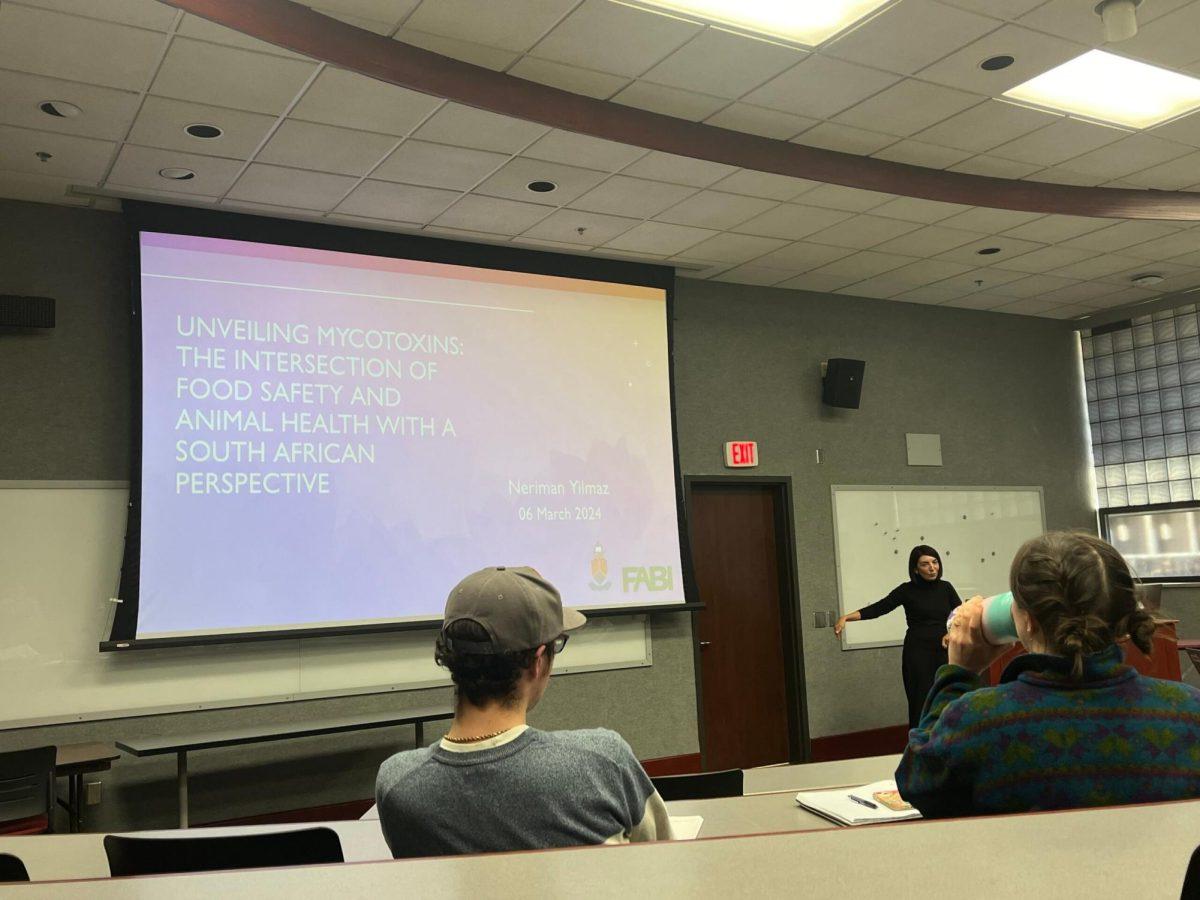In a seminar March 6 at Babcock Hall, Senior Post-Doctoral Fellow at the South African University of Pretoria Forestry and Agricultural Biotechnology Institute Neriman Yilmaz spoke on her research. Yilmaz’s seminar was titled “Unveiling mycotoxins: The intersection of food safety and animal health with a South African perspective.”
Yilmaz has a background in food engineering and food microbiology from Ege University and Istanbul Technical University. From there, she went on to study the fungus Talaromyces for her doctorate at Utrecht University and Westerdijk Fungal Biodiversity Institute, according to FABI.
Following the completion of her doctorate, Yilmaz studied with Keith Seifert at Agriculture and Agrifood Canada as a post-doc and completed another post-doc at Carleton University, Yilmaz said. Throughout both post-docs, Yilmaz continued her studies with fungi.
Currently, Yilmaz studies mycotoxins at FABI. Yilmaz said mycotoxin means “mushroom poison” when broken down into its Greek roots. Over the years, more mycotoxins have been reported thanks to today’s technology and molecular techniques that make identification and detection much more accurate.
But Yilmaz said researchers are seeing a shift in mycotoxin-producing fungi as the climate also shifts.
“Mycotoxins are a global concern,” Yilmaz said.
With a South African perspective, specifically, Yilmaz is studying mycotoxins in corn and dairy cattle. In a certain region of South Africa, the Eastern Cape, people have to produce their food because they don’t have or go to any supermarkets. Yilmaz said corn and milk are both important agricultural commodities for this region.
Though mycotoxin levels can be low, the people’s consumption of corn is higher than a typical person’s, and research is showing that males in Eastern Cape are experiencing higher levels of cancer, Yilmaz said. This region also sees very little government regulation.
“As scientists, we feel very responsible for introducing the people of Eastern Cape to mycotoxins,” Yilmaz said.
The mycotoxin Pseudopithomyces affects the dairy industry in South Africa. It causes a disease in dairy cows called facial eczema or pithomycotoxicosis in grazing animals such as dairy cattle, Yilmaz said. This disease damages the livestock’s liver.
Tackling this issue begins first with identifying the species of mycotoxins farmers are dealing with before implementing any prevention or protection strategies, Yilmaz said.
Though the South African government supports the startup of dairy farms, Yilmaz said farmers are often solely responsible for raising the livestock without any education on how to care for or feed them.
With a growing global population and a predicted two billion more people by 2050, farmers must increase food production by 60% to meet global food needs. But this shouldn’t only concern South African farmers — what’s happening there isn’t only South Africa’s problem to resolve, Yilmaz said.
“It’s not only my problem or [South Africa’s] problem to resolve. It is everyone in this room’s problem to bring a solution to,” Yilmaz said. “It is all of our responsibility to feed the people of the world.”


